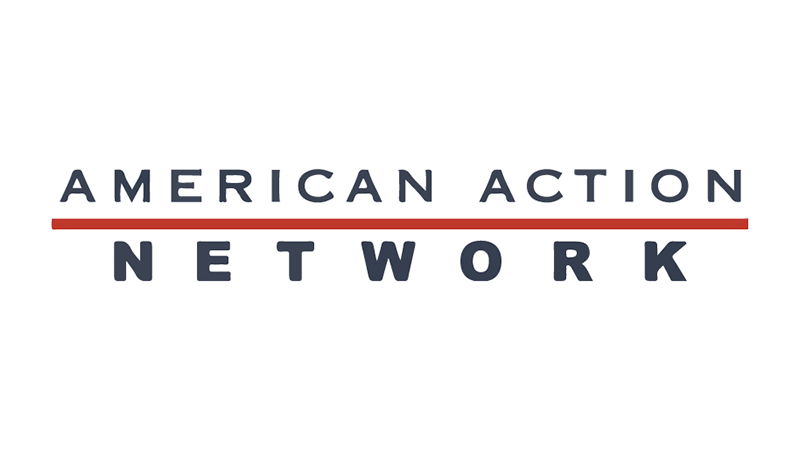Notes from Norm: A Better Way to Better Health Care
The American Action Network, at its formation, has advocated this position on U.S. health care policy:
“Health care should be a physician-patient decision, not a government decision. Yet Obamacare has exponentially grown the reach of government into our health care while delivering little more than broken promises with higher costs and fewer choices. We believe in patient-centered health care solutions that provide Americans access to quality, affordable health care of their choice.”
And, since the formation and passage of Obamacare we’ve been a leading voice in calling for its repeal, while at the same time focusing on health care policy that protects America’s health are options and choices at prices they can afford.
So, too, has been the Speaker of the House Paul Ryan, and his “A Better Way” initiative offers further guidance on how Congress can get the nation back on track towards health care policies that respect America’s choices and protect their pocketbooks.
The five principles outlined by the Speaker with regard to health care are as follows:
1. Repeal Obamacare.
2. Provide all Americans with more choices, lower costs, and greater flexibility.
3. Protect our nation’s most vulnerable. Patients with pre-existing conditions, loved ones struggling with complex medical needs, and other vulnerable Americans should have access to high-quality and affordable coverage options.
4. Spur innovation in health care.
5. Protect and preserve Medicare.
Republicans in Congress have voted to directly repeal Obamacare multiple times, and indirectly voted to repeal the more egregious elements of it dozens of times, yet it may be the votes of the marketplace that finally destroy the ill-fated policy.
The departure of major insurers from Obamacare, massive spikes in premium costs, failed economic assumptions, overly optimistic enrollment projections and a public that still opposes the policy are all coming together in a perfect storm that will ultimately capsize the President’s biggest domestic policy achievement.
Yet, repealing Obamacare without having alternatives that work for the American people is not a solution to the reforms that must be made to the system.
The difference between how the President approached health care reform, and how Ryan and his vision approach it, makes all the difference in the world.
For the President, government has always been the solution.
For Ryan, it is the private sector leading the way, with government getting out its way, that creates a stronger, more sustainable reform for health care.
And, the American people agree.
Recent polling by the American Action Forum shows Americans continue to be wary of government controlling their health care future. By a margin of 57% to 26% Americans believe that private health insurers are better at providing access to quality healthcare than the government.
By a nearly 10-point margin they believe that private health insurers are more likely to provide affordable health care coverage versus the government and 49% believe that the same private insurers are better equipped to provide the best coverage to Americans with serious health conditions like cancer and HIV versus while only 34% believe the government is better equipped to do so.
Those who believe in the power of big government, led this year by Hillary Clinton, still advocate for a more expansive government role in health care. Bernie Sanders may not be the Democrats Presidential candidate but it should not be forgotten that the government-run health care policy he so proudly promoted is one that Hillary Clinton has never been shy of embracing.
And, despite liberal claims of being the only ones capable of supporting the most vulnerable of America’s citizens, it has been them, not Republicans and Conservatives, that have sought to gut Medicare in order to subsidize Obamacare.
In fact, efforts led by liberals in Congress and the Obama Administration seek to change Medicare Part B payment policy for treatments and would allow bureaucrats to impose additional changes to Medicare that could directly threaten seniors’ access to health care.
Congress has had to step in repeatedly during the Obama Administration to stop or otherwise repeal its ill-conceived policies on health care time and time again.
A glaring example of that was when a 2.3% excise tax was placed on medical devices as a way to help fund Obamacare in 2010.
Not only did this impose a great burden on a single industry but it diverted critical dollars that should have been used to spur innovation and technological advances in medical technology to instead raise taxes to pay for Obamacare.
After five years of opposition by the Obama Administration a two-year suspension of the tax was passed by Congress in 2015.
This election year, there is much at stake in not only the race for the White House but also in who will control the U.S. Senate and House of Representatives.
It is the control of the two bodies of Congress that may have far more impact on health care policy than anything that a President Clinton or Trump may propose or advocate in the White House.
Health care in America needed reform before Barack Obama was elected President. The need to address access to affordable, quality health care was as obvious then as it is today.
The difference then was the President decided to take a go-it-alone approach that rejected bipartisan solutions in favor of a government-centric health care policy that ignored the patient-centered health care solutions that Americans were seeking.
Listening to Americans, partnering with private insurers, limiting the role of government, protecting vulnerable Americans, enhancing Medicare and making investments that encourage innovation in health care are at the core of Speaker Ryan’s vision for improving health care.
It’s a better way for affordable, accessible health care for all Americans.



